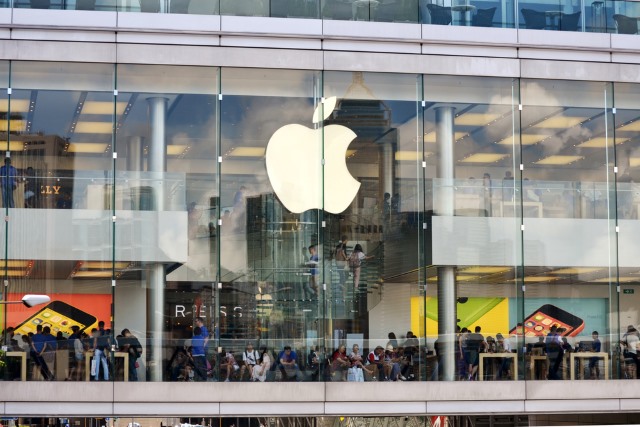Apple sued over iOS app distribution 'monopoly'

It is no secret that iOS is a tightly controlled ecosystem. There is not a whole lot that users can do to customize their iPhones, and there are not that many options for developers wanting to sell their apps outside of the App Store. In fact, if you do not want to reach a very small audience, who likes to jailbreak their devices, your one and only bet is the App Store.
A number of customers believe that that is a problem so serious that they sued Apple over its perceived iOS app distribution monopoly. A complaint was filed all the way back in 2011, but only now did a court allow the lawsuit to go forward.
Bloomberg reports that a three-judge panel at the federal appeals court in San Francisco has now sided with the plaintiffs, after a lower-court judge dismissed the lawsuit because they "lacked standing to sue as 'direct purchasers'".
There is a 1977 Supreme Court ruling that basically protects companies in the case that customers want to recover damages if they do not directly sell those products to consumers. Apple considers itself an intermediary when it comes to App Store sales, saying "it does not sell apps but rather sells software distribution services to developers".
The lower court accepted Apple's argument, but the federal appeals court did not, saying "Apple’s analogy is unconvincing. In the case before us, third-party developers of iPhone apps do not have their own stores". It's a tricky situation, as you can see. Apple does give developers the opportunity to sell their apps through the App Store, but the customers are still Apple's after all is said and done.
But, back to the complaint. The plaintiffs say that Apple violates US antitrust law when it requires iOS apps to be sold through the App Store and does not allow third-party developers to sell their titles through other venues. That, however, is not entirely accurate, because app developers can distribute iOS apps through different app stores (on jailbroken devices), it's just that this is not normally available as an option to customers.
It is true that Apple basically has a monopoly here, but a bigger issue that the plaintiffs have is the fact that Apple takes a 30 percent cut for every sale, which leads to higher prices. If there was competition (or room for "aftermarket" sellers) Apple's cut might be lower, resulting in cheaper apps. That is an interesting complaint.
Realistically speaking, Apple is in a position of control and whatever it says goes. However, the policies it has in place for developers do not necessarily affect consumers in the way that this lawsuit suggests. The walled garden may be perceived as a downside, but it is a huge benefit if we look at it from a security point of view.
It is well known that iPhones and iPads are very safe, and much of this comes from the fact that you can't install apps from everywhere, and, as a result, expose yourself to all sorts of nasty malware. Android lets you do that, and users can get in trouble as a result, and quite often they do. There is no win-win here, but Apple's approach does make sense and it is why many consumers choose it over a different smartphone maker.
One can also argue that the 30 percent cut is, indeed, too high, but fact of the matter is Google does the same and it has an even more popular ecosystem. But is it unfair? That can be difficult to say. Does it lead to higher prices? I wouldn't say that it does, because apps are cheap already. Developers can make more money by raising prices, but they will do so at their own risk.
Ultimately, consumers can choose to use a different platform if iOS does not meet their needs. Apple's monopoly isn't the same as Microsoft's, in the sense that you have a viable alternative in Android whereas Windows is unchallenged in the PC market. Trying to force Apple to become more like Google will not necessarily make iOS better, nor will it necessarily benefit the vast majority of users.
This is something that Apple will surely use as defense in the case, which might turn into a class-action lawsuit. A lawyer for the plaintiffs, Mark Rifkin, suggests that "millions of consumers" could be included, and that Apple could end up losing "hundreds of millions of dollars".
Either Rifkin does not know exactly how much Apple makes from App Store sales or he has little confidence in how much the plaintiffs could win -- if they win anything, that is. In the last year alone, Apple took home about $8.5 billion in revenue, after paying developers, and since 2008, when the App Store launched, it generated more than $27 billion in revenue from that 30 percent cut policy.
Hundreds of millions is pocket change, considering that the plaintiffs want Apple to pay for the entire period the App Store has been live. Even a billion dollars would be 3.7 percent of that amount, which is not a lot. That would mean that Rifkin will basically make the case that Apple should pay consumers back only a very small amount of that 30 percent cut. If hundreds of millions of consumers do join the class-action lawsuit, no one but the lawyers will realistically get anything out of it. I don't believe anyone will be happy to get a buck, or two after many years of litigation -- and these lawsuits tend to go on for years and years.
Photo credit: Maen Zayyad / Shutterstock